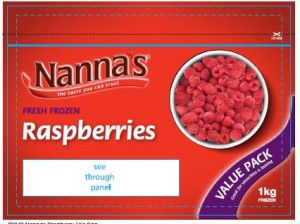I went to Woolies in Annerley, Queensland (that’s in Australia), after taking my daughter to school on Monday, and was shocked to find Nanna’s berries – those linked to a growing hepatitis A outbreak — on the frozen shelves.
I asked the woman at checkout, weren’t those berries recalled?
She said, only the mixed ones.
 I said, the raspberries and blueberries you’re selling are coming from the same source.
I said, the raspberries and blueberries you’re selling are coming from the same source.
She shrugged and said, not in the recall.
They are Tuesday.
With at least 14 Australians now confirmed ill with hepatitis A from frozen berries apparently grown in China, the case presents a microcosm of intersecting interests of global food, vaccination fears, poor handwashing and xenophobia (which Australians are particularly good at; as John Oliver said, “Australia is one of the most comfortably racist places I’ve ever been in. They’ve really settled into their intolerance like an old resentful slipper”).
The complacency of Australian regulators is astounding when compared to other Western-style food safety agencies.
There was limited notice of the recall from state and federal food safety agencies until they all turned up for work on Monday: people eat seven days a week.
The company involved, Patties Foods in Bairnsdale in regional Victoria, repacks frozen berries grown who knows where (China and Chile in this case, apparently).
They said on Saturday they were going to run adverts in the papers on Monday, and were actually praised on Brekky TV for being proactive.
No, they weren’t. proactive. If it were the U.S., the company would be sued into bankruptcy for negligence.
Even worse is the media coverage and ridiculous statements from groups that should know better.
Australians have health types saying, throw the berries out (which I can understand for a public health perspective), and lawyers saying, don’t, keep them frozen for evidence to get in on the inevitable lawsuit.
The news programs are filled with reports about, buy Aussie, avoid the foreign berries, but keep food prices low.
For those worried about Hepatitis A:
- Get vaccinated. It’s been mandatory in Canada and several U.S. states for five years. It was mandatory for us to emigrate to Australia four years ago. It should be mandatory for locals. If I ran a restaurant, I’d want everyone to be vaccinated.
- Wash your hands. Hepatitis A is one of the few foodborne diseases that is only spread human-to-human. And, like most foodborne illness, it’s fecal-oral. The typical U.S. scenario is a 20-something goes to Mexico or the Dominican for a friends wedding (and where hep A is endemic), comes back and is serving salad to a few thousand people at their part-time job. But it’s not just the person is positive: The same person also failed to adequately wash their hands after having a poop, and ended up making your lunch. And was not vaccinated.
- Cook frozen berries. The science is complicated but the best guess is, boil the berries; cooking however, won’t deal with cross-contamination.
- Know your suppliers. I’ve talked with a lot of parents at my daughter’s school in the past few days and they are all concerned. But usually for the wrong reasons. It is incumbent on the supplier – and the retailers who market this crap – to provide safe food. They’re the ones who make money.
Food porn is everywhere, but microbiology involves some basics: that’s why there’s vaccines, that’s why milk is pasteurized; that’s why we don’t eat poop (and if we do, make sure it’s cooked).
That’s why I have a bunch of tip-sensitive digital thermometers for my daughter’s school.
Dr. Douglas Powell is a former professor of food safety at the University of Guelph in Canada and Kansas State University in the U.S., who shops, cooks and ferments from his home in Brisbane, Australia.
0478 222 221
